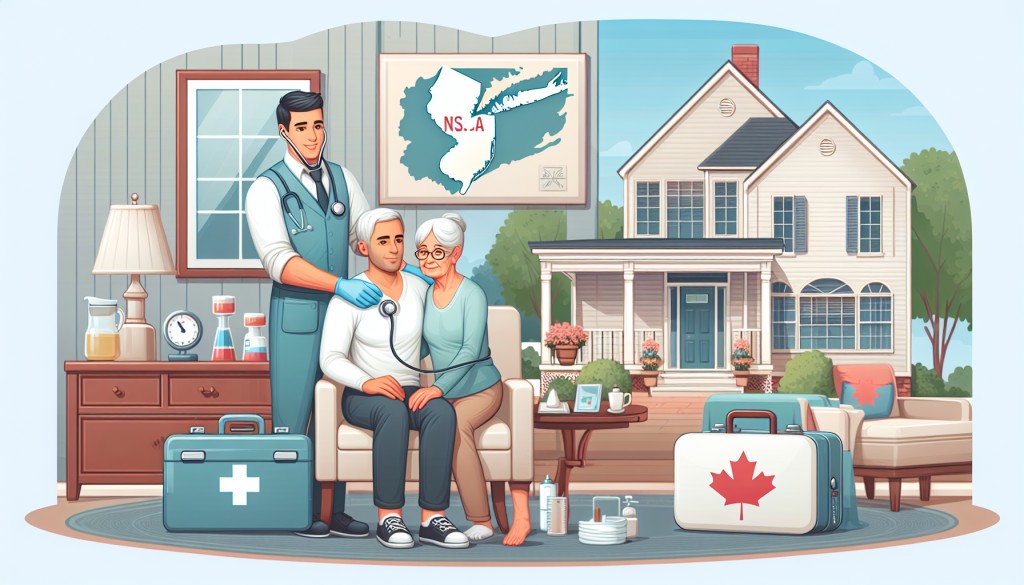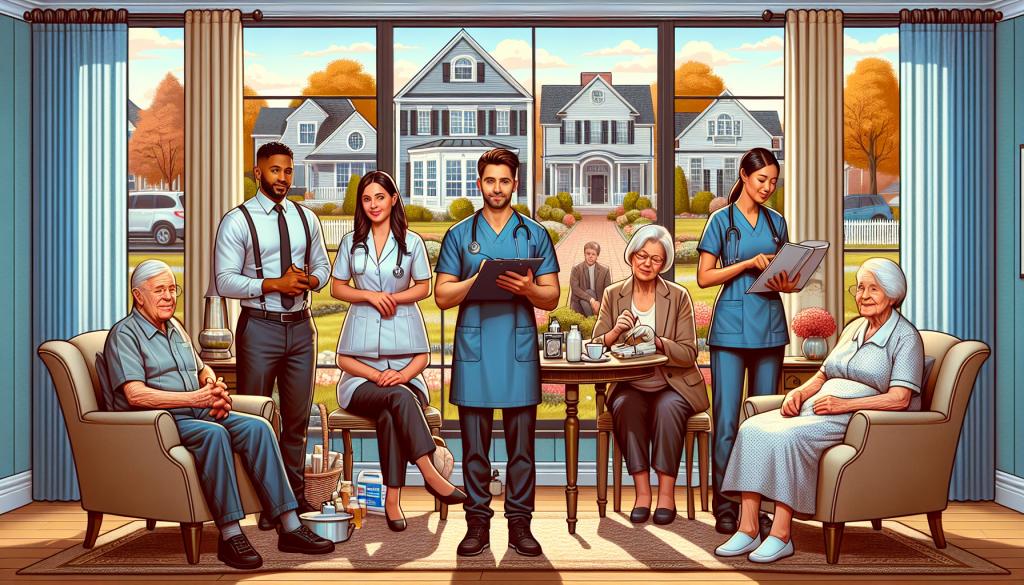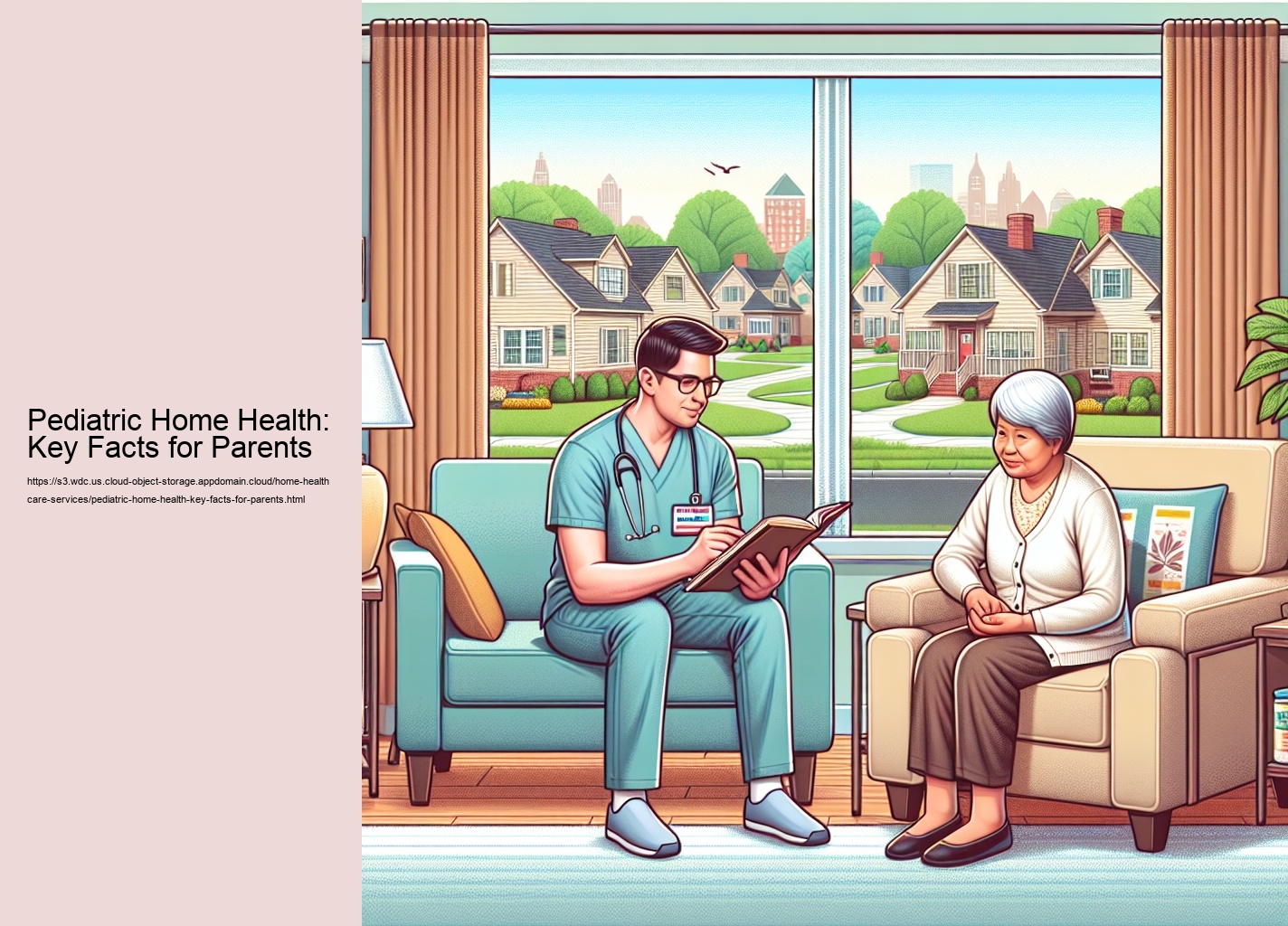Verify Licensing, Accreditation, and Top Quality Ratings
Before you sign with any home doctor in 2025, deal with licensing, certification, and quality rankings as non‑negotiables. Home Care Recovery Times That May Surprise You . Start with the fundamentals: confirm the agency is appropriately licensed in your state for the specific services you require. "Home health and wellness" (competent nursing, therapy, injury care) is managed differently from "home care" or "individual treatment" (showering, dressing, friendship). Utilize your state health department or expert licensing board's online data source to validate the company permit is energetic and in great standing, and that it covers the appropriate solution group. If the firm will bill Medicare, confirm it is Medicare‑certified; you can cross‑check this on Medicare's Care Contrast website.
Certification isn't the like a license, however it signals the company has fulfilled higher criteria and undertakes normal exterior evaluation. Look for respected approving bodies such as The Joint Commission, MAN, or ACHC. Request an existing accreditation certification and the date of the last survey. For non‑medical home treatment, certification is voluntary; if a firm isn't recognized, they should have the ability to describe just how they preserve high quality and oversight in its lack.
Do a deeper credential examine the people that will certainly remain in your home. Registered nurses, licensed nurses, physical and physical therapists, and social workers all have specific licenses you can confirm through state boards. Home wellness aides need to satisfy state training needs. It's affordable to ask the company to verify that all staff have actually passed history checks, are out the federal OIG Exclusions Provide, and lug ideal professional responsibility and employees' settlement insurance coverage. Request evidence of the firm's general obligation insurance coverage; numerous family members additionally request a certificate of insurance policy upon contracting.
Use objective quality scores to contrast firms, not just testimonials. On Medicare Care Compare, review the celebrity scores and dig into specific steps like prompt initiation of care, rehospitalization prices, renovation in mobility and self‑care, and individual experience ratings from HHCAHPS surveys. In 2025, Home Health Value‑Based Buying uses across the country, so ask the firm to share its most current efficiency or outcome reports and what it is doing to boost. For Medicaid home- and community‑based solutions, check your state's provider directory for quality signs, crucial occurrence reports, and EVV (digital check out verification) conformity information. On-line evaluations can be informative yet should not bypass official quality data and regulative records.
Request transparency. Ask the agency for its latest state study outcomes and plan of adjustment, any kind of CMS assents or penalties, and just how complaints are handled. In an age of telehealth and remote tracking, inquire about device security and personal privacy techniques, HIPAA compliance, and whether any type of digital tools they use are FDA‑cleared where relevant. If the firm declares hospital or doctor collaborations, validate exactly how they share info, particularly if they incorporate with your medical professional's record system.
Red flags include evasive answers regarding licensing or survey history, expired accreditation, missing evidence of insurance coverage, unusually high personnel turnover without any explanation, or quality scores well below regional standards. A reputable company will invite these inquiries, supply documents quickly, and assist you translate rankings in the context of your needs. Confirming qualifications and quality in advance requires time, but it is one of the most trustworthy method to safeguard safe, reliable treatment at home.

Examine Telehealth, Remote Surveillance, and Data Safety and security
Examine Telehealth, Remote Monitoring, and Information Safety
In 2025, selecting a home healthcare provider implies looking beyond bedside abilities to the digital foundation that sustains your care. Telehealth, remote client monitoring, and data safety currently identify just how hassle-free, risk-free, and connected your care will certainly be.
Beginning with telehealth. Video clip sees ought to really feel as dependable as an office appointment. Ask how simple it is to schedule, whether you can see the very same clinician for continuity, and what happens if the connection goes down. Look for functions like e-prescribing, protected messaging, after-visit recaps, and language access such as interpreters or subtitles. Verify the platform works with your devices, sustains access needs, and offers tech assistance for elders or caregivers. Just as vital is combination: does the telehealth platform speak with your existing medical documents so your health care clinician sees updates? If care crosses state lines, verify licensure and whether your insurer covers the solutions you prepare to utilize.
Remote monitoring can transform day-to-day live for individuals managing chronic conditions, recovering after surgical procedure, or needing safety checks. Focus on scientific value and functional dependability. Which conditions do they keep an eye on and with what devices? Are the tools FDA-cleared and validated for home use? Who sees the data, how typically, and what are the action times for irregular readings in the evening or on weekend breaks? Ask just how alert thresholds are readied to restrict false alarms and how frequently those limits are evaluated. Inspect whether gadgets are lent or acquired, that handles arrangement, training, and replacement, and what cellular or Wi‑Fi connection is required. Interoperability still matters below also: will your information flow right into your health document, and can you see it in a person app?

Data security must never ever be an afterthought. A provider's insurance claim of "HIPAA certified" is a standard, not a differentiator. Try to find independent audits or qualifications (as an example, SOC 2 Kind II, HITRUST, or ISO 27001), file encryption of data in transit and at remainder, multi-factor verification, and role-based gain access to with audit logs. Ask about event response and breach alert procedures, just how typically they run safety drills, and their approach to ransomware resilience and backups. For home gadgets, confirm that information is secured on the device and during transmission, software is maintained to day, and shed or taken devices can be from another location cleaned. Clarify that has your information, how much time it's preserved, exactly how to request removal, and whether de-identified data is made use of for analytics or shown to third parties. Make certain a Business Associate Contract exists between the technology vendors and the treatment service provider, and that frontline staff are trained in privacy techniques, consisting of obtaining authorization for any type of recording.
Lastly, consider the human side of the modern technology. Will they assist set up your Wi‑Fi or supply cellular sets if you do not have broadband? Do they supply clear instructions, large-print materials, multilingual support, and caregiver training? Is there 24/7 tech support and a simple way to escalate medical worries?
In a marketplace crowded with applications and gadgets, the most effective home healthcare solutions in 2025 mix top notch professional care with trustworthy digital gain access to, actionable monitoring, and strenuous defense of your details. Pick the group that discusses their innovation plainly, proves their safeguards, and makes it simple for you and your household to make use of.
Examine Treatment Program, Staffing, and Caregiver Fit
Choosing home healthcare in 2025 means looking beyond a shiny pamphlet. The appropriate partner will reveal you a clear care strategy, reputable staffing, and a caretaker who really fits your liked one's requirements and personality. Start with the care strategy. Ask exactly how the firm examines requirements and sets objectives: not just diagnoses, yet useful capabilities, medicines, fall threat, cognitive support, nutrition, solitude, transport, and caretaker respite. A solid plan is written by or under the guidance of a registered nurse or therapist, with quantifiable results (for example, fewer drops, enhanced movement, medicine adherence) and a timetable for evaluation-- typically every 30 to 60 days or after any change in condition. In 2025, many firms utilize remote patient surveillance and telehealth; make sure the strategy explains what devices are utilized, who assesses the data, and how info is shown your doctor. Interoperability and privacy issue-- ask whether their systems connect to your physician's electronic documents, exactly how information is secured, and who can see updates.

Staffing is where assures satisfy reality. Clear up whether caretakers are W‑2 staff members or 1099 service providers; staff members typically have more powerful oversight, training, and insurance protection. Verify qualifications (CNA, HHA, LVN/LPN, REGISTERED NURSE), history checks, driving records if transport is included, immunizations, CPR, and any specialty training like dementia or Parkinson's care. Request for their turn over price, ordinary caretaker period, and fill rate for changes-- numbers that expose stability. Continuity is crucial: will you have a key caretaker with a tiny backup swimming pool, or see constant turnings? What is the back-up prepare for sick days, no-shows, tornados, or public health and wellness notifies? In a tight labor market, agencies that pay relatively and offer advantages often tend to maintain team better-- don't hesitate to ask exactly how they sustain caretaker well‑being and avoid exhaustion.
Caretaker fit goes beyond availability. Share candid details concerning routines, language preferences, social or spiritual methods, pet convenience, smoking level of sensitivities, songs or food preferences, and personality design. A great agency will make use of organized matching-- abilities, language, cultural competency, sex choice, driving capacity, and physical ability for transfers or devices-- to recommend a caretaker and established a meet‑and‑greet. Many will let you try a short test change before committing. Observe chemistry: Does the caregiver listen, make eye contact, and ask thoughtful inquiries? Do they appreciate limits while being positive? If your loved one has dementia, seek perseverance, redirection abilities, and a calmness, reassuring existence.
Communication ought to be straightforward and consistent. Ask to see the family website or application if one exists: Can you check out check out notes, jobs finished, vitals, and messages? How quickly does the office respond, and what is the rise path after hours? That is your named care supervisor, and how commonly will they check out in person to manage treatment? In 2025, lots of states require digital visit confirmation-- confirm that clock‑in/ out shields you from billing for missed time, which your data is not made use of for anything else without permission.
Quality and accountability are nonnegotiable. Seek accreditation (Joint Commission, CHAP, or ACHC) and state licensure. Inquire about customer contentment scores, complaint resolution time, case rates (drops, hospitalizations), and any kind of value‑based programs they join. Ask for 2 recent customer referrals with comparable needs. Testimonial agreement details very carefully: minimum hours, termination terms, replacement warranties, and what takes place if the caregiver isn't a fit. If you're utilizing Medicare for proficient home health, clarify what is covered and for the length of time; for private obligation treatment, inquire about long‑term care insurance policy, Medicaid waivers, VA benefits, and whether the company can aid with paperwork.
Practical safety inquiries round out the picture. Just how do they examine the home for threats and recommend tools? Do they educate caretakers on safe transfers and infection control? What is the plan on video cameras in the home? If the caregiver will certainly drive your enjoyed one, validate insurance coverage and vehicle requirements.
Warning include vague or cookie‑cutter care strategies, no registered nurse oversight, high turn over, regular last‑minute routine modifications, hesitation to share outcome data, aggressive sales strategies, or resistance to a meet‑and‑greet. Green lights include transparent reporting, foreseeable staffing with back-ups, respectful matching, and a clear prepare for constant renovation.
Ultimately, the ideal option really feels both expert and personal. You should see a plan you can recognize, a group you can reach, and a caregiver your loved one expects seeing. If any type of piece doesn't really feel right, keep looking-- fit, in home care, is every little thing.
Compare Pricing, Insurance Coverage Protection, and Agreement Terms
Contrasting rates, insurance protection, and agreement terms is where most families either conserve thousands-- or face undesirable surprises-- when picking home medical care services in 2025. Treat this like you would any type of major purchase: demand clarity, verify advantages in composing, and check out the fine print with a tranquility, hesitant eye.
Begin with rates. Ask each company for an itemized quote that matches your actual treatment plan: variety of hours per week, level of caregiver (aide vs. LPN/RN), and any kind of specialized requirements such as dementia care, wound treatment, or post-surgical support. In 2025 you'll see a number of versions-- per hour rates, visit-based fees, live-in rates, and bundled "crossbreed" strategies incorporating in-person treatment with telehealth and remote surveillance. Compare apples to apples by consisting of add-ons: minimum-hour needs, overtime limits, weekend and vacation premiums, travel or auto parking charges, nurse guidance or care management charges, innovation or device service, and costs for urgent scheduling. Ask how usually prices can alter, whether there's a price-lock period, and if rises are connected to a set percentage or an index. Clarify what occurs when the treatment strategy adjustments mid-month: do they pro-rate or re-quote? If you're thinking about a windows registry as opposed to a full-service company, factor in your duty for payroll taxes, employees' compensation, and obligation-- what looks less expensive upfront can set you back much more in threat and management.
Next, determine insurance protection. Know the distinction in between medical home health and wellness (experienced nursing, therapy, commonly covered if clinically essential) and non-medical home care (aid with bathing, dishes, and friendship, commonly not covered by typical medical insurance). For Medicare: competent home health and wellness can be covered when qualification criteria are fulfilled, yet individual care is generally not, unless folded into a strategy of care. Medicare Benefit intends progressively use additional at home support, dish delivery, or remote surveillance-- advantages differ commonly by plan, need in-network service providers, and may require prior consent or recertification, so validate limits, copays, and see caps prior to you begin. Medicaid benefits and Home- and Community-Based Services waivers can be generous however vary by state and took care of care strategy; waiting lists and company networks matter. Long-term treatment insurance can money substantial hours as soon as profit triggers are fulfilled (normally requiring assist with 2 or more tasks of day-to-day living or cognitive impairment), however view removal periods, everyday or month-to-month caps, and lifetime optimums. Veterans might receive Aid and Presence or Homemaker/Home Health and wellness Assistant solutions via the VA. Ask if the agency will certainly confirm advantages, deal with authorizations, and bill straight, and whether they'll continue care if authorizations gap. If you intend to self-pay, ask about discounts for longer schedules, autopay, or packed programs. HSAs and FSAs can typically be made use of for clinically required solutions; for tax obligation deductions or credit scores, speak with a tax obligation professional.
Currently, the contract terms-- the component most people skim and later remorse. Search for:
- Discontinuation and notification: Can you stop briefly or terminate without penalties? Exist minimums or very early termination fees?
- Auto-renewal and rate changes: How are rises communicated and topped?
- Staffing and replacements: Exactly how quickly do they replace a caregiver who's unwell or not a fit? Is there a test duration or fulfillment warranty?
- Non-solicitation and buy-out: If you intend to work with a caretaker straight later, what fee applies?
- Staff member status and insurance: Are caretakers W-2 staff members covered by employees' comp and responsibility insurance? Request proof.
- Range of method: What jobs can aides legitimately carry out in your state (drug management, transfers, catheter treatment)? That manages and how usually?
- Documentation and openness: Will you have access to electronic check out logs, care notes, and reassessments? Who updates the treatment strategy and just how frequently?
- Payment cycle and conflicts: Down payments, late fees, reimbursements for extra hours, rounding policies for shift start/stop times, and the procedure for contesting an expense.
- Security and privacy: Event coverage, infection control, background checks, driving plans, and information privacy for any remote monitoring devices.
- Conflict resolution: Arbitration clauses, place, and your rights under state customer laws.
Do a straightforward "true cost" comparison across finalists: forecasted weekly hours x price + all expected charges-- verified insurance coverage repayment. After that layer in non-financial worth: responsiveness, backup insurance coverage, supervisory high quality, and result monitoring. In 2025, reputable agencies can show high quality metrics and might participate in value-based programs-- request for their hospitalization decrease prices or customer contentment ratings.
Before signing, obtain every guarantee in writing, consisting of begin day, caregiver qualifications, and the precise solutions covered. If the agreement really feels thick or discriminatory, have actually a relied on expert or attorney examine it. The most effective deal is not just the most affordable rate-- it's the arrangement that provides risk-free, reliable treatment with foreseeable costs and not a surprises.
